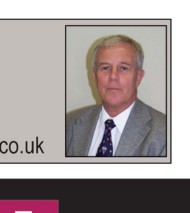 The giving of sick notes by GPs has gone on since the NHS was created in 1948 despite managers up and down the country complaining about regular abuse. The first change, and hopefully for the better, took effect on 6th April 2010. From that date the Med 3 sick note has been replaced with a new ‘Fit Note’.
The giving of sick notes by GPs has gone on since the NHS was created in 1948 despite managers up and down the country complaining about regular abuse. The first change, and hopefully for the better, took effect on 6th April 2010. From that date the Med 3 sick note has been replaced with a new ‘Fit Note’.
The new Fit Note has the simple aim of aligning the thinking of GPs and employers so that both parties can encourage an absent employee’s early return to work even when the employee is not ‘fully fit’.
While doctors can still certify employees as either fit or unfit to work there is now a third option, namely ‘fit for some kind of work’. The new Fit Note is designed to encourage doctors to offer practical advice to employers about the level of work an employee can undertake, whether this is amended duties, shorter working hours or different working hours, or workplace adjustments to accommodate the employee.
 It is hoped that this major change will go some way towards lowering the £17.3 billion cost of absenteeism but for that to happen the three parties to the Fit Note will need to respond positively. The employee will need to recognise the benefit to his employer and of course his work colleagues of some contribution compared to none; the doctor, generally perceived as patients advocates, will need to find the time during consultation to determine the employee’s job activities in order to assess what adjustments could be made to enable an earlier return to work; and finally the employer has an important part to play too.
It is hoped that this major change will go some way towards lowering the £17.3 billion cost of absenteeism but for that to happen the three parties to the Fit Note will need to respond positively. The employee will need to recognise the benefit to his employer and of course his work colleagues of some contribution compared to none; the doctor, generally perceived as patients advocates, will need to find the time during consultation to determine the employee’s job activities in order to assess what adjustments could be made to enable an earlier return to work; and finally the employer has an important part to play too.
What should employers be doing to make the new Fit Note system work for them? Well quite a few things: make sure that managers and all employees understand the change and that an early return to work will be beneficial to the organisation without jeopardising the health of the individual; be supportive to employees returning to work early; view workplace adjustments as a positive event; improve return to work interviewing to ensure that the employee can contribute positively in the prescribed work and review sick pay arrangements to meet reduced hours, amended shift work and or reduced contribution levels.
If management can get this new system to work they ought to see positive leaps in productivity.
Dr Hugh Billot, Managing Director
HR+ Limited




Comments are closed.